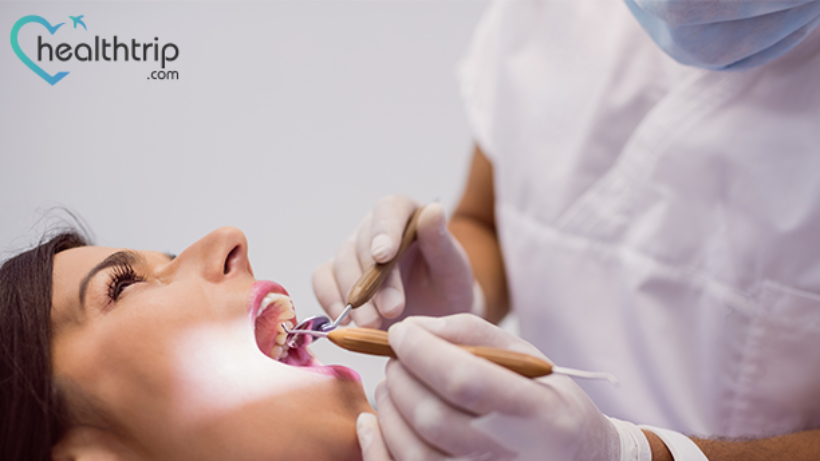Oral Cancer Treatment without Surgery

Overview
Oral cancer, or mouth cancer, is one of the most common forms of head and neck cancer in India. This may appear as a growth or sore that doesn’t heal on its own. This includes cancers of the lip, cheeks, tongue, palate, the floor of the mouth, and pharynx as well. However, oral cancer can be cured if treated early. As per our oncologists, surgery is often considered the first line of treatment. Thanks to recent developments in cancer treatment, there are now more options available for treating oral cancer without surgery. We've covered a variety of non-surgical treatment options for oral cancer in this article.
Book free consulting session with HealthTrip expert
The treatment plan that you need for oral cancer :
The treatment of oral cancer may depend on multiple factors. Your mouth cancer treatment will be determined by:
- The type and size of the tumour
- The grade and stage (how far it has spread)
- Your overall health
- If cancer has not spread beyond the mouth or the part of your throat at the back of your mouth (oropharynx), surgery alone may be enough to cure you.
- If the cancer is large or has spread to your neck, you may need a combination of surgery, radiotherapy, and chemotherapy.
Your doctors will make treatment recommendations with the assistance and advice of your entire care team, but the final decision will be yours.
1. Chemotherapy:
Chemotherapy is a cancer treatment that employs the use of chemicals to kill cancer cells. Chemotherapy can be given alone or can be given in conjunction with other cancer treatments. Chemotherapy may improve the efficacy of radiation therapy, so the two are frequently combined.
The side effects of chemotherapy may vary depending on the drugs used. Nausea, vomiting, and hair loss are some, to name a few. Inquire with your doctor about the potential side effects of the chemotherapy drugs you'll be given.
2. Radiotherapy: Radiotherapy employs radiation doses to kill cancerous cells.
It is usually used after surgery to prevent cancer from returning in cases of mouth cancer.
It is frequently used as the first treatment for throat cancer, along with chemotherapy (chemoradiotherapy).
Depending on the size of cancer and how far it has spread, the treatment is usually given every day for 6 weeks.
3. Immunotherapy: Immunotherapy is used to treat oral cancers that can’t be treated with surgery. Immunotherapy helps your immune system find and kill cancer cells. A type of medicine called checkpoint inhibitor acts by blocking the signals that stop white blood cells from attacking cancer cells.
While some people get rashes, others may experience itchy skin. You can always consult your doctor about the side effects of immunotherapy.
4. Photodynamic therapy (PDT): If you have mouth lesions that are on the verge of turning into cancer, or if cancer is in its early stages and only found on the surface of your mouth, photodynamic therapy (PDT) may be recommended. However, it has not yet been compared to conventional treatment in terms of cure rate.
PDT can also be used to control cancer temporarily when it has been determined that further conventional treatment will not provide a cure or benefit. PDT entails taking a medication that causes all of your skin and other tissues to become sensitive to the effects of light. Cancerous tissue becomes even more vulnerable.
However, you should stay in a dark room for at least 7 days after therapy. Any amount of exposure to light might be harmful to you during this time. You may develop serious burns to your skin.
5. Targeted therapy: a new kind of medicine called cetuximab is used instead of standard chemotherapy to treat oral cancer. This acts by targeting the protein in the cancer cells.
Usually, those who are not eligible to get chemotherapy( pregnant patients, patients with kidney disease) can opt for targeted therapy.
How can we help with the treatment?
If you are in search of oral cancer treatment in India, we will serve as your guide throughout the treatment. Our medical trip advisors will be physically present with you even before the treatment begins. The following will be provided to you:
- Opinions of expert physicians and surgeons
- Transparent communication
- Coordinated care
- Prior appointment with specialists
- Assistance with hospital formalities
- 24*7 availability
- Arrangement for travel
- Assistance for accommodation and healthy recovery
- Assistance in emergencies
We are dedicated to offering the highest quality health care services to our patients. We have a team of highly qualified and devoted health trip advisors who will be by your side from the beginning of your journey.



